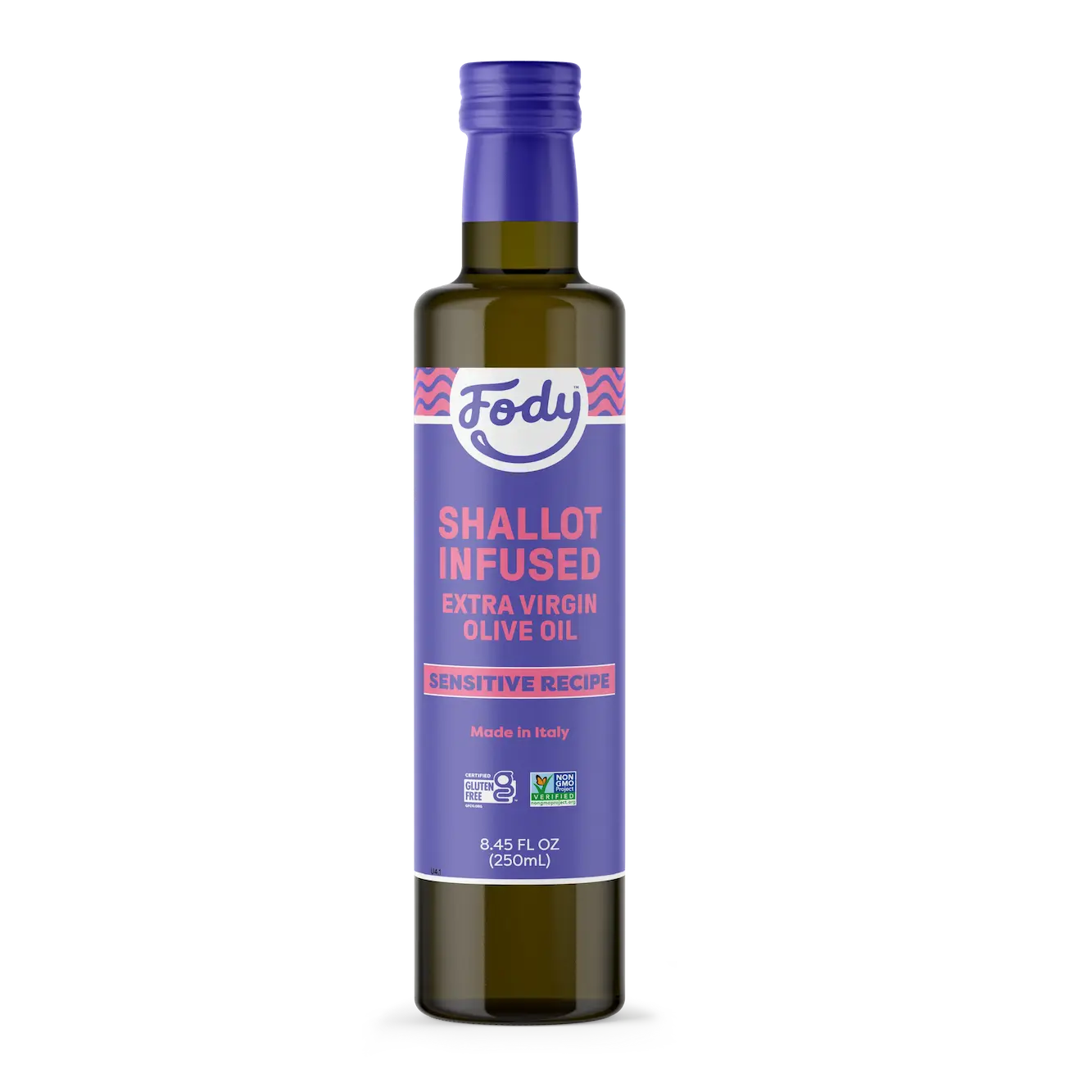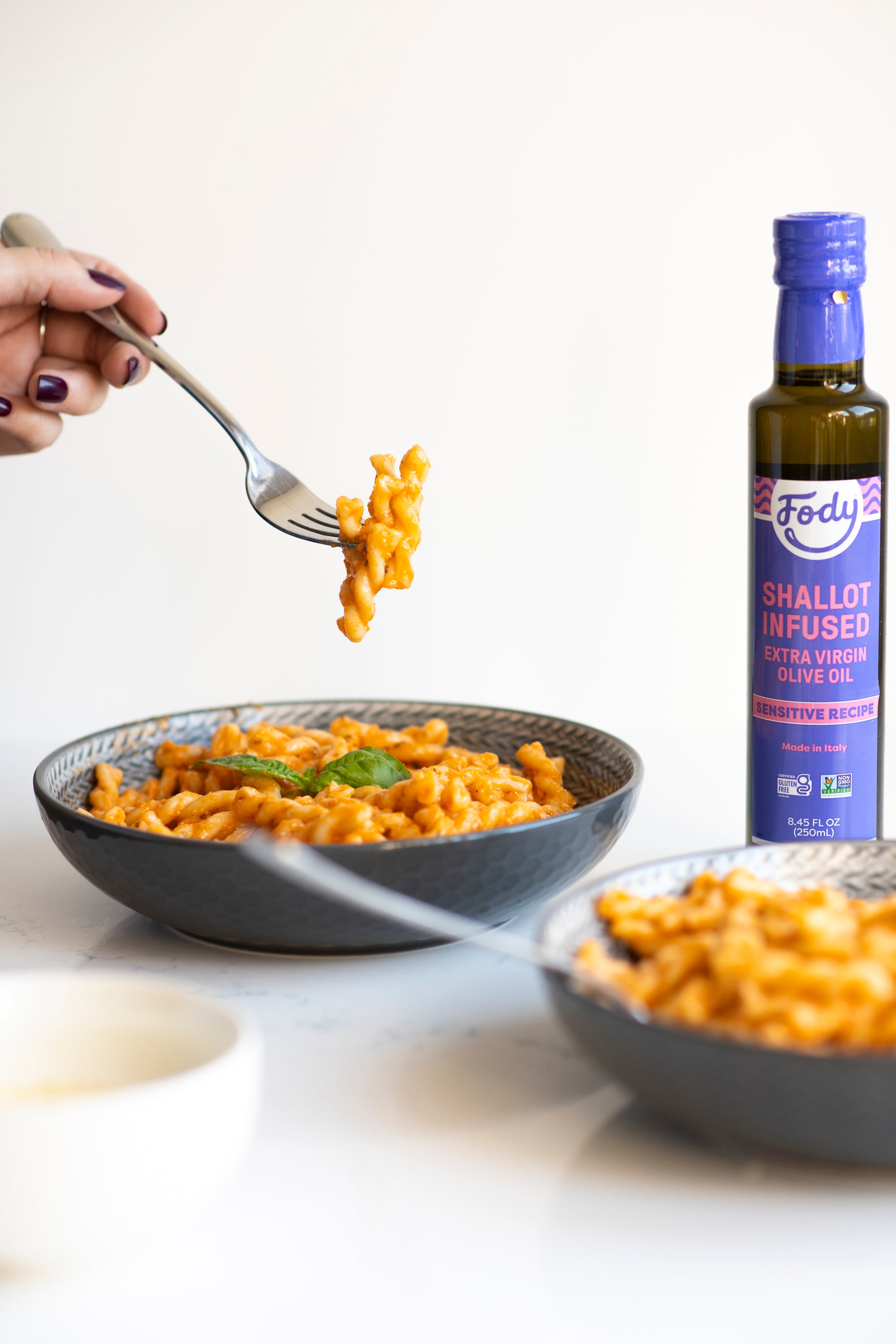

The Truth About Artificial Sweeteners and Gut Health
Since their discovery in the late 19th century, artificial sweeteners have been controversial. Some people believe that they’re a low-calorie way to enjoy sugar-free sweet treats and lose weight. For others, they’re a bitter-tasting chemical to be treated with suspicion. But what are they for people trying to maintain good gut health? Here’s the truth about artificial sweeteners and gut bacteria.
What are artificial sweeteners?
Artificial sweeteners are types of chemicals several times sweeter than sugar – up to 20,000 times, in some cases! The most common types are aspartame, sucralose and saccharine. Chances are you’ve heard of a couple of them, and you most likely remember their brand names from those omnipresent packets on tables in coffee shops and diners.
These sugar substitutes derive their reputation as a weight-loss aid from the fact that most contain zero calories, or, more precisely, the fact that they are so much sweeter than sugar that very little is needed to produce a similar taste. Some artificial sweeteners have natural origins, and some are totally synthetic and created in labs; one example of the latter kind is aspartame, which was accidentally created in 1965, and is composed of two amino acids.
Are artificial sweeteners and gut bacteria a bad combo?
While artificial sweeteners were once believed to be carcinogenic, recent research has found no evidence of artificial sweeteners causing cancer. However, before you reach for the zero-calorie soda or you start baking with saccharine, it’s worth considering the way artificial sweeteners and gut bacteria interact.
In his book The Gut Balance Revolution, Dr. Gerard E. Mullin explains that sugar alcohols – or polyols, one of the short-chain carbohydrates avoided by people following a low-FODMAP lifestyle — are “found [...] in certain artificial sweeteners, such as xylitol, manitol, and sorbitol.” This means that during digestion, these chemicals are not absorbed as they pass through your stomach, and are instead consumed by the gut bacteria, which then turn them into gas and other uncomfortable symptoms. Certain artificial sweeteners may also contribute to the growth and prevalence of harmful bacteria in the gut.
What does this all mean? Essentially, some artificial sweeteners composed of short-chain carbohydrates may feed harmful gut bacteria and can lead to unpleasant digestive symptoms. But beware: this isn’t necessarily the case for all artificial sweeteners, nor are natural sugars off the hook. Some artificial sweeteners are low -FODMAP — remember aspartame and those two amino acids? Aspartame, stevia, sucralose and saccharine are all considered low-FODMAP due to their chemical composition, which contains no short-chain carbohydrates.
So do sweeteners make or break good gut health?
The bottom line is this: the verdict is still out on the question “are artificial sweeteners bad for you?” From their health detriments to their health benefits, the truth is that more research is still needed to get definite answers. In the meantime, there is a golden rule to follow when it comes to low-FODMAP artificial sweeteners and gut health: sometimes it’s what you eat, sometimes it’s how much, and sometimes, it’s both.
Our advice? Start by getting familiar with how to read the ingredients list on the products you buy and consume. If you live with IBS or other digestive conditions – or if you follow a plant-based or gluten-free diet – you’re probably very used to reading labels. If you’re not, it’s worth it to learn the different names for artificial sweeteners and natural sugars, and look for them in the labels of the products you buy, even in food other than candy and sweets. Remember that hidden sweeteners are everywhere, from condiments to drinks to sauces. If you are looking for something sweet at the grocery store, keep Fody’s list of low-FODMAP sweeteners handy to make a gut-friendly choice.
Choosing products without added sugars or sweeteners can also help you keep your groceries simple and your meals delicious. Fody Foods products are designed to keep your food delicious without the discomfort, and contain no added sugars or artificial sweeteners; whether it’s spicing up your pasta or using your go-to sauce or seasoning, Fody Foods is your ally in bloat-free, worry-free cooking! Finally, remember: gut health doesn’t come down to eating or omitting a single ingredient. Good gut health comes from eating a well-balanced, bloat-free diet that leaves you and your body feeling comfortable and full.
For more tips and tricks for a gut-friendly diet, check out more articles on Fody’s blog, and browse our products to discover a wide array of new favourites and go-to kitchen staples that will take your gut-friendly cooking to a new level. Now that’s sweet!
So, what are you waiting for?
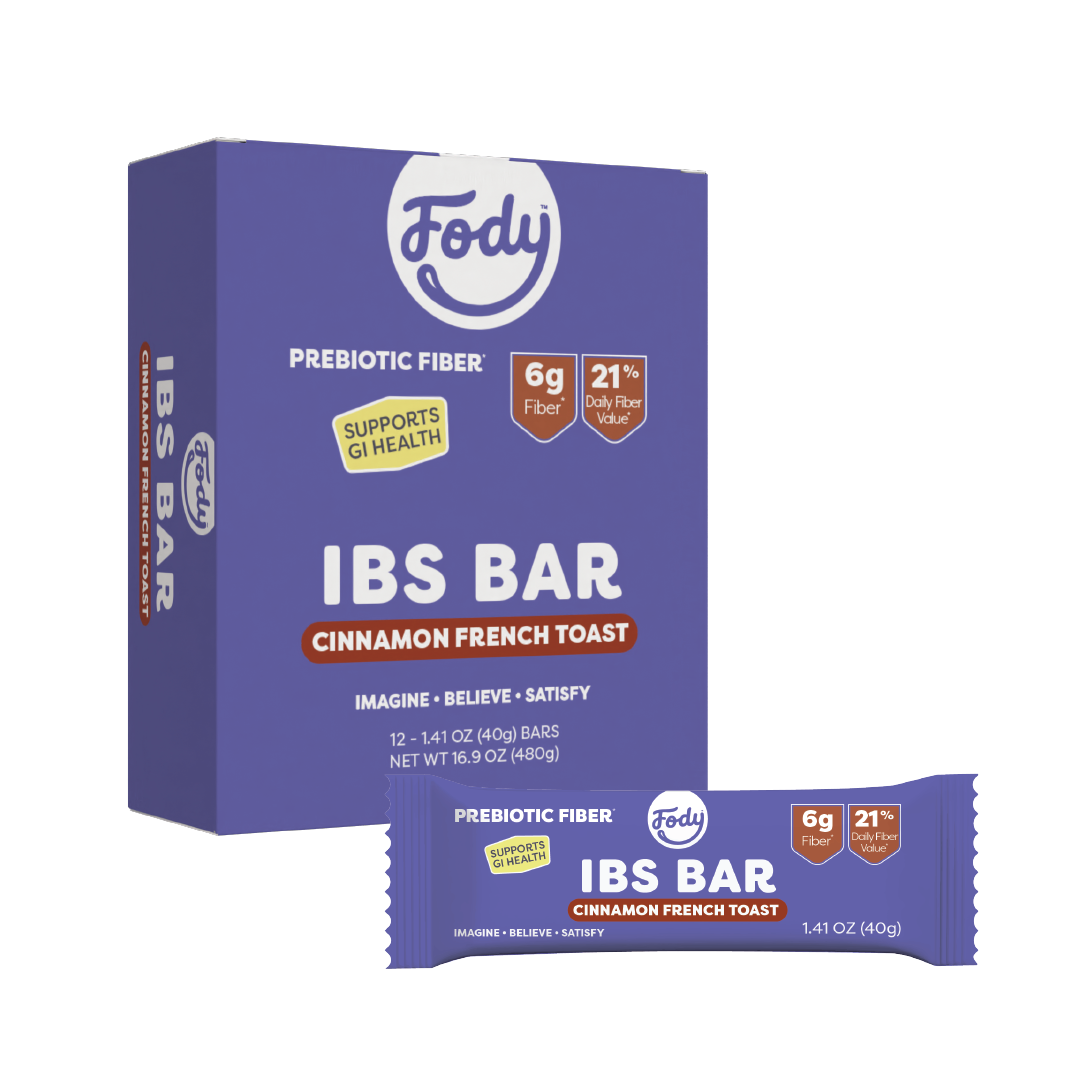
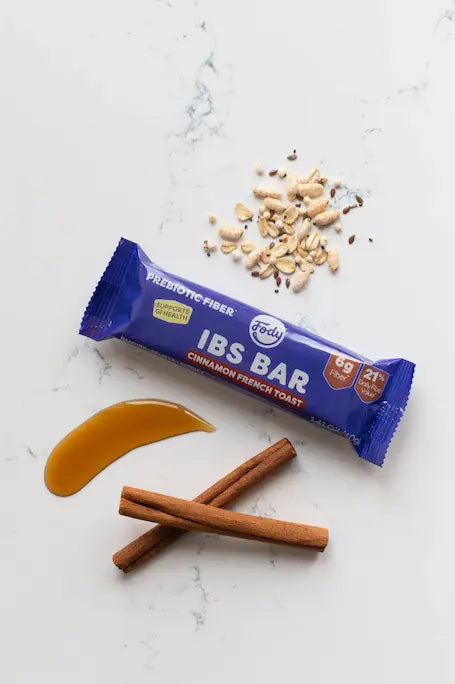 Cinnamon French Toast High Fiber Snack Bar - 12 Pack
Cinnamon French Toast High Fiber Snack Bar - 12 PackCinnamon French Toast High Fiber Snack Bar - 12 Pack
$32.99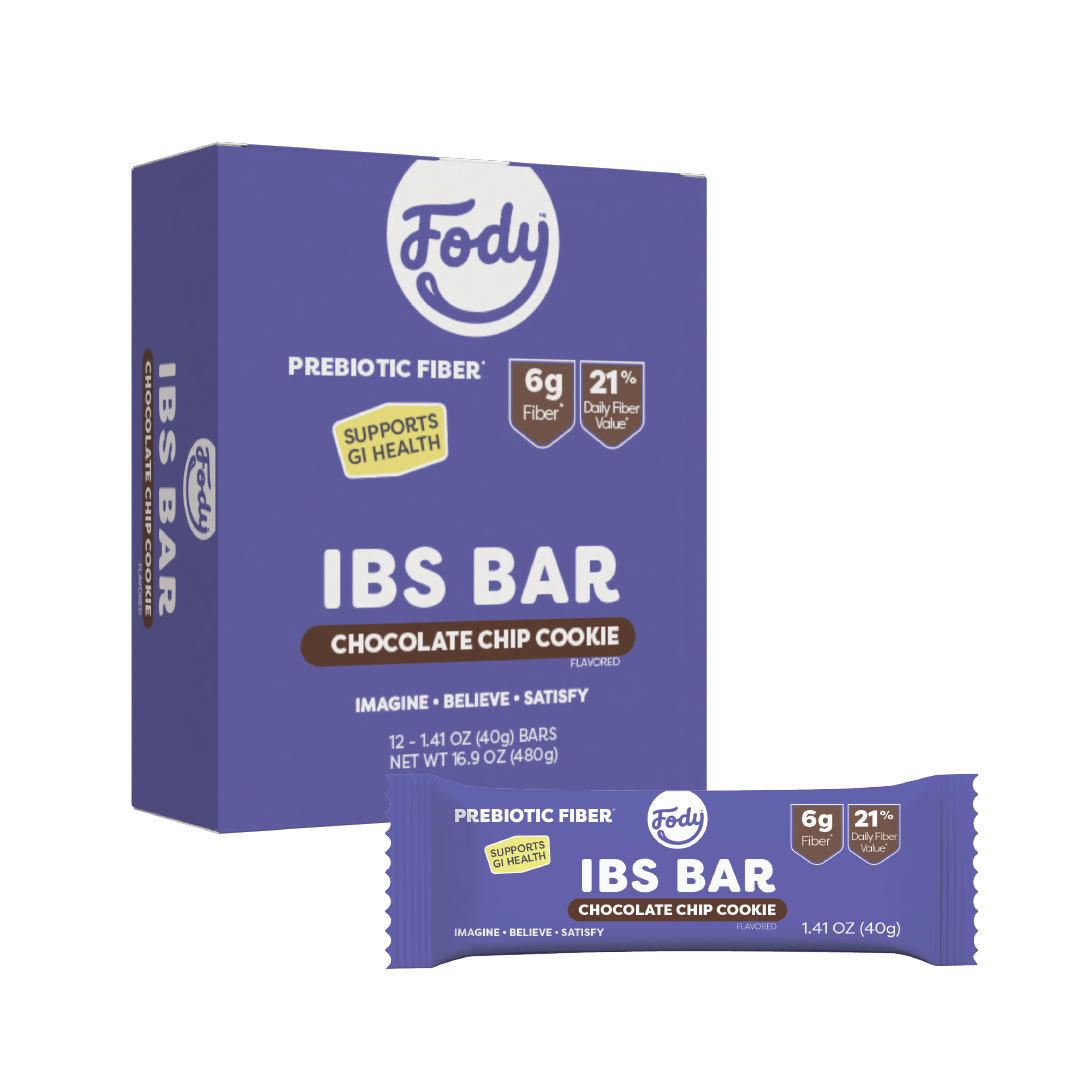
 Chocolate Chip Cookie High Fiber Snack Bar - 12 Pack
Chocolate Chip Cookie High Fiber Snack Bar - 12 PackChocolate Chip Cookie High Fiber Snack Bar - 12 Pack
$32.99











